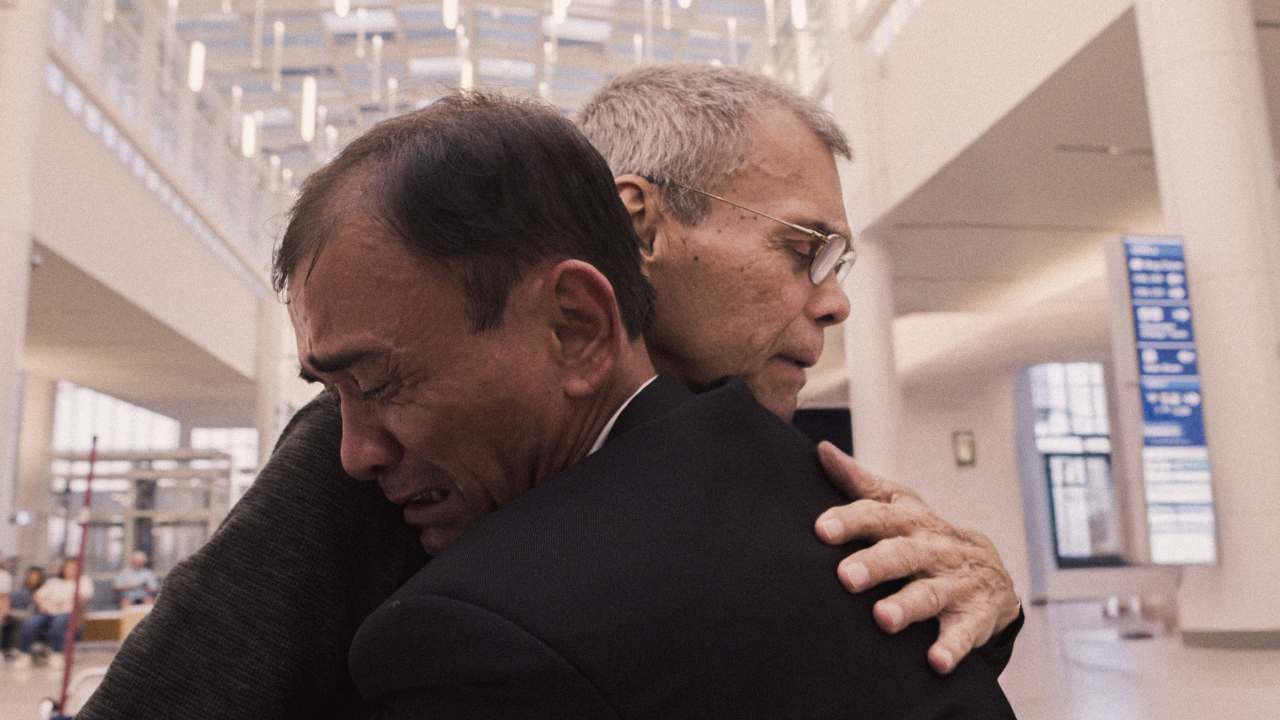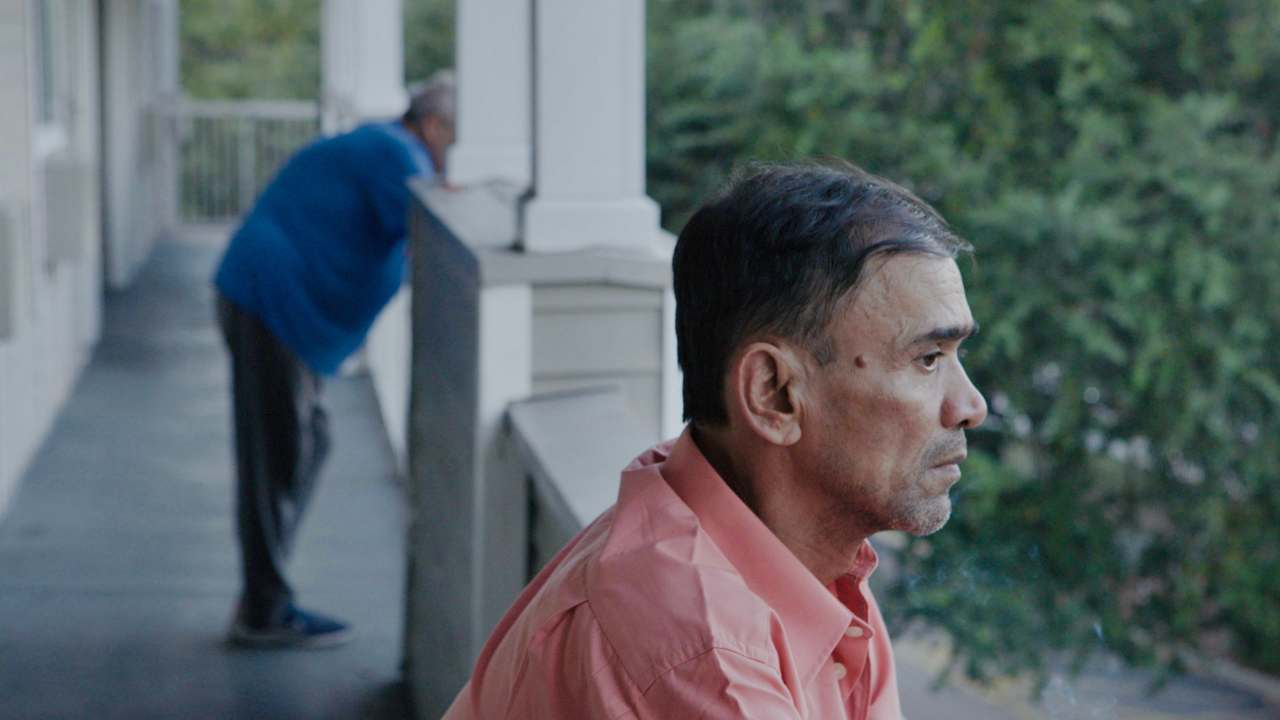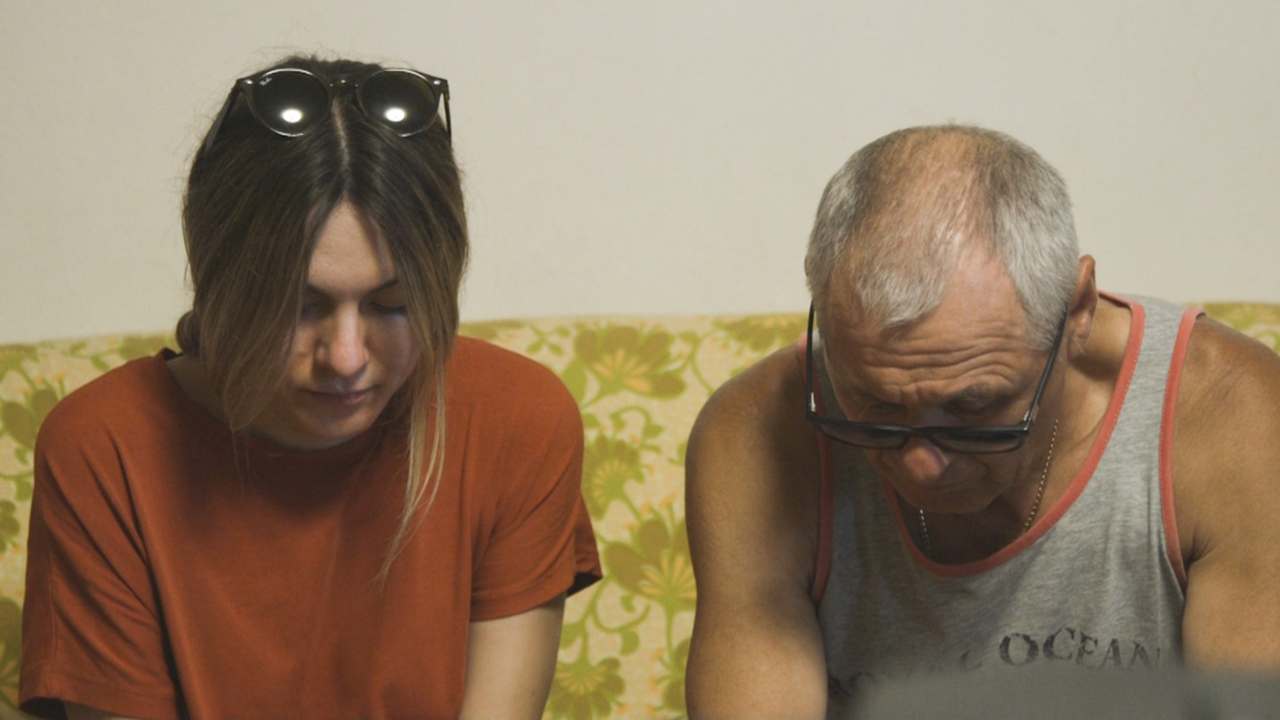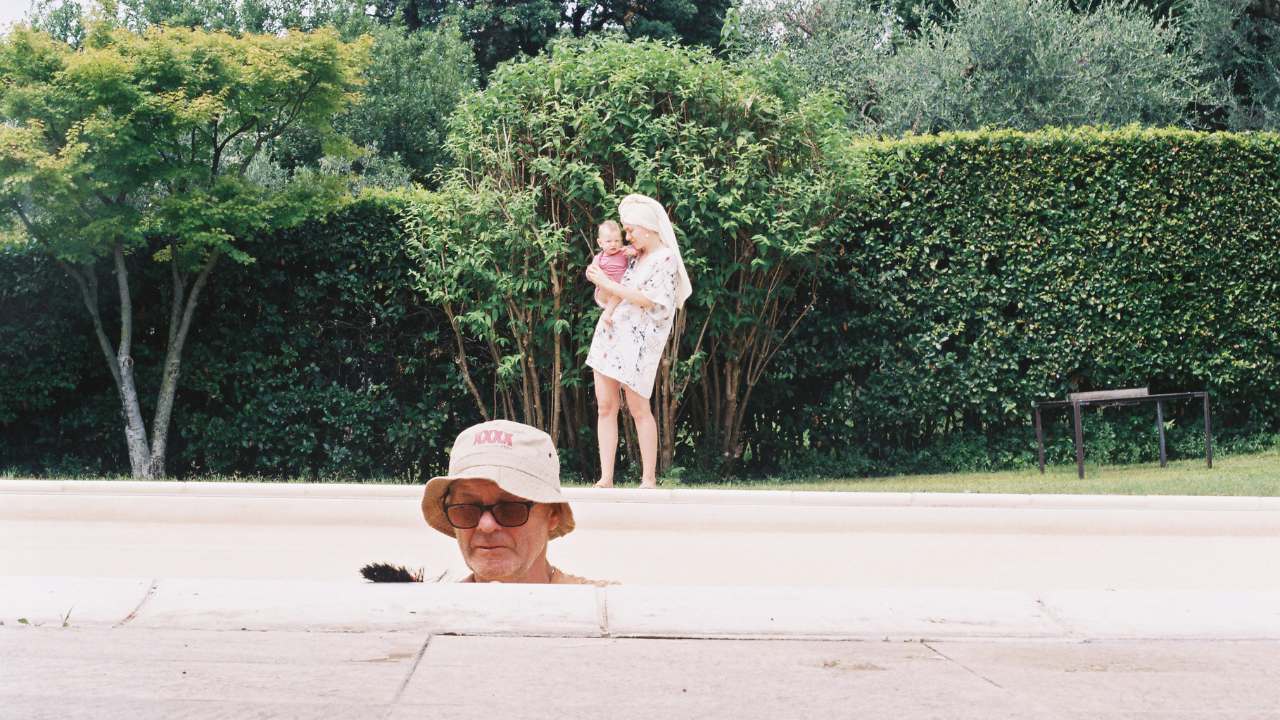For some, an absent father is a relief; for others, a cause for a lifetime of longing. The harrowing Tata, directed by Lina Vdovîi and Radu Ciorniciuc, explores the former, while Weronika Mliczewska’s touching Child of Dust delves into the latter. Both films have been selected for the International Documentary Competition at the 65th Kraków Film Festival.
I’m particularly fond of documentaries where personal experience is embedded within a broader social, political, or historical context. This is particularly true of Weronika Mliczewska’s ‘Child of Dust’, which navigates the delicate terrain of reckoning with one’s past while simultaneously presenting an encounter between two individuals whose understanding of blood ties, familial roles, intimacy, and identity couldn’t be more different. The intimate tale of a Vietnamese man searching for the American father he has never known gradually unfolds into a profound meditation on today’s divided world. It’s similar in ‘Tata,’ where Moldovan journalist Lina Vdovîi, alongside Radu Ciorniciuc, seeks to aid her father, who has fallen victim to invisible slavery in Italy. Yet it’s difficult to be a whistleblower when unresolved traumas still cast long shadows over a father-daughter relationship, – remarks sectioncurator Anita Piotrowska.
Stories about families have long been a fixture of the Kraków Film Festival programme. This year’s International Documentary Competition is going to feature two powerful productions examining the complex bonds between children and their absent fathers. In Child of Dust, which received recognition at the Thessaloniki International Film Festival, absence is literal: for decades, the Vietnamese protagonist had no way of knowing whether his American father was even alive. Meanwhile, in Tata by Lina Vdovîi and Radu Ciorniciuc, Vdovîi’s father, who spent years working abroad, was someone she actively avoided and refused to contact. In both films, the opportunity arrives to make a change and reconcile with an estranged family member.
The Son
The devastating war in Vietnam lasted nearly a decade, leaving behind not only destruction, death, and chaos but also thousands of children. Most American soldiers refused to acknowledge their offspring, severing all ties. In Vietnamese culture and religion, the figure of the father holds profound significance; his absence condemned these children to lives of exclusion and social stigma. Sang, the protagonist of Weronika Milczewska’s Child of Dust, endured such ostracism for fifty years before finally receiving a rare opportunity to meet his father. To fulfil his lifelong dream, however, he must leave his family behind and emigrate from Vietnam forever. Yet what seemed the greatest challenge proves to be merely the prelude to a painful confrontation with reality.
Although Child of Dust is a story about intergenerational trauma, identity search, and the painful journey toward healing, it is not without moments of humor. This is thanks to the intimate presence of the camera, which closely follows the protagonist at various stages of his search for loved ones—during language lessons, playful moments with his grandchild, or heartfelt conversations with his beloved wife. The director accompanies Sang through his struggles, is by his side during his first meeting with his American family, and remains with him through the difficult beginnings of his stay in the United States. She is even present during deeply emotional conversations with his newfound relatives. Will Sang be able to find closure for a war that ended 50 years ago and build a future free from its burden?


The Daughter
A father’s absence due to economic migration does not always fill one with longing – sometimes, it brings relief. Lina, along with her mother and sisters, would send VHS tapes to her father, recording themselves reciting poems, singing songs, and showcasing their school achievements. Such a form of communication suited them better than his physical presence. When he did return to their home in Moldova, he was often violent and abusive. Years later, Lina chose to cut all ties with her father, becoming a well-known journalist and focusing on her private life. Unexpectedly, however, she receives a message from her estranged parent. Having fallen prey to exploitative labour conditions in Italy, he has been beaten and abused by his employer. Now, helpless, he is reaching out to his daughter for help.
Tata is an extraordinary fusion of investigative documentary and a deeply personal story of director Lina Vdovîi’s closest family. As the woman becomes entangled in her father’s case, she simultaneously tries to work through her own old wounds, attempting to break free from her family’s abusive past and prepare herself for a new role: that of a mother. Throughout her journey, she is accompanied by her mother, grandmother, and her supportive partner, the film’s co-director, Radu Ciorniciuc.


The International Documentary Competition will feature 15 of the latest films from around the world competing for the Golden and Silver Horns.
Insider passes for the 65th Kraków Film Festival are now on sale!
The Krakow Film Festival is on the exclusive list of film events qualifying for the Academy Awards® in short film categories (fiction, animation, documentary) and feature-length documentary, the European Film Awards in the same categories, and serves as a qualifying event for the BAFTA Awards.
The Krakow Film Festival is organised with financial support from the City of Krakow, the Ministry of Culture and National Heritage, the Polish Film Institute, and the Creative Europe MEDIA Programme. The Polish Filmmakers Association serves as co-organiser.
The 65th Krakow Film Festival will be held from 25 May to 1 June 2025, and online on KFF VOD from 30 May to 15 June.